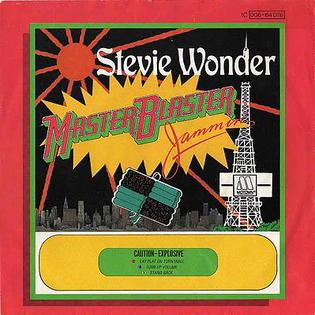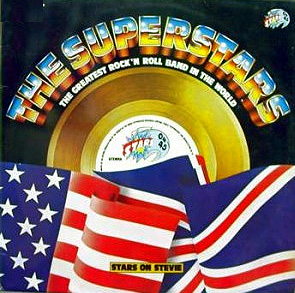Related Research Articles
Jamming may refer to:

The Andrews Sisters were an American close harmony singing group of the swing and boogie-woogie eras. The group consisted of three sisters: contralto LaVerne Sophia, soprano Maxene Anglyn, and mezzo-soprano Patricia "Patty" Marie. The sisters have sold an estimated 80 million records. Their 1941 hit "Boogie Woogie Bugle Boy" can be considered an early example of jump blues. Other songs closely associated with the Andrews Sisters include their first major hit, "Bei Mir Bist Du Schön " (1937), "Beer Barrel Polka " (1939), "Beat Me Daddy, Eight to the Bar" (1940), "Don't Sit Under the Apple Tree " (1942), and "Rum and Coca Cola" (1945), which helped introduce American audiences to calypso.

Thurl Arthur Ravenscroft was an American actor and bass singer. He was known as one of the booming voices behind Kellogg's Frosted Flakes animated spokesman Tony the Tiger for more than five decades. He was also the uncredited vocalist for the song "You're a Mean One, Mr. Grinch" from the classic Christmas television special, Dr. Seuss' How the Grinch Stole Christmas!
"Ac-Cent-Tchu-Ate the Positive" is a popular song which was published in 1944. The music was written by Harold Arlen and the lyrics by Johnny Mercer. The song was nominated for the "Academy Award for Best Original Song" at the 18th Academy Awards in 1945 after being used in the film Here Come the Waves.

"Bei Mir Bistu Shein" is a popular Yiddish song written by lyricist Jacob Jacobs and composer Sholom Secunda for a 1932 Yiddish language comedy musical, I Would If I Could, which closed after one season at the Parkway Theatre in Brooklyn, New York City. The score for the song transcribed the Yiddish title as "Bay Mir Bistu Sheyn". The original Yiddish version of the song is a dialogue between two lovers. Five years after its 1932 composition, English lyrics were written for the tune by Sammy Cahn and Saul Chaplin, and the English version of the song became a worldwide hit when recorded by The Andrews Sisters under a Germanized spelling of the title, "Bei mir bist du schön", in November 1937.

"Boogie Woogie Bugle Boy" is a World War II jump blues song written by Don Raye and Hughie Prince which was introduced by The Andrews Sisters in the Abbott and Costello comedy film, Buck Privates (1941). The Andrews Sisters' Decca recording reached number six on the U.S. pop singles chart in the spring of 1941 when the film was in release. The song is ranked No. 6 on Songs of the Century. Bette Midler's 1972 recording of the song also reached the top ten on the U.S. Billboard Hot 100.
Joseph Francis "Sonny" Burke was an American musical arranger, composer, Big Band leader and producer. In 1937, he graduated from Duke University, where he had formed and led the jazz big band known as the Duke Ambassadors.

"I Can Dream, Can't I?," is a popular song written by Sammy Fain with lyrics by Irving Kahal that was published in 1937. It was included in a flop musical, Right This Way. Tommy Dorsey released a hit recording of it the same year, but it was in the postwar years that the song gained its greatest success. Harry James recorded a version in December 1937 for Brunswick.

Don Raye was an American songwriter, best known for his songs for The Andrews Sisters such as "Beat Me Daddy, Eight to the Bar", "The House of Blue Lights", "Just for a Thrill" and "Boogie Woogie Bugle Boy." The latter was co-written with Hughie Prince.

"Master Blaster (Jammin')" is a 1980 song by American singer-songwriter Stevie Wonder, released as the lead single from his nineteenth studio album, Hotter than July (1980). It was a major hit, spending seven weeks at number one on the US Billboard R&B singles chart, reaching number five on Billboard's pop singles chart in the fall of 1980 and peaking at number two on the UK Singles Chart, and number one in New Zealand.
"Nice Work If You Can Get It" is a popular song and jazz standard composed by George Gershwin with lyrics by Ira Gershwin.
"Para Vigo me voy", known in English as "Say Si Si", is a popular song written in 1935 by Cuban composer Ernesto Lecuona with lyrics by Francia Luban and Al Stillman. Early bands to record the song include Xavier Cugat's orchestra (1935) and Lecuona Cuban Boys (1937). The song was copyrighted in the United States in 1940. It became a hit in the US when it was recorded by The Andrews Sisters and Glenn Miller in 1940, and The Mills Brothers in 1953.

Constance Foore "Connee" Boswell was an American female vocalist born in Kansas City but raised in New Orleans, Louisiana. With sisters Martha and Helvetia "Vet", she performed in the 1920s and 1930s as the trio The Boswell Sisters. They started as instrumentalists but became a highly influential singing group via their recordings and film and television appearances
"They All Laughed" is a song composed by George Gershwin, with lyrics by Ira Gershwin, written for the 1937 film Shall We Dance where it was introduced by Ginger Rogers as part of a song and dance routine with Fred Astaire.

The Superstars was the third album by the Dutch soundalike studio group Stars on 45, released on the CNR Records label in The Netherlands in March 1982. In the US, the album was retitled Stars On Long Play III, released on Radio Records and credited to 'Stars On'. In the UK, Ireland, Australia and New Zealand, the album was instead titled Stars Medley, again credited to Starsound and released by CBS Records. Just like the first Stars on 45 album The Superstars was also issued in the Soviet Union and large parts of the Eastern Bloc by the state-owned label Melodiya, credited to Stars on 45 but released under the title Discotheque Stars 2.

Vaughan Mason & Crew was an American funk and post-disco based group led by Vaughan Mason. They are best known for their single "Bounce, Rock, Skate, Roll", which reached number 5 on the US Billboard Hot Soul Singles and number 38 on the Disco Top 100 charts in 1980, riding the crest of the roller disco wave that was popular at the time. In 1981, Vaughan Mason released the single "Jammin' Big Guitar", which charted at number 65. "Bounce, Rock, Skate, Roll" has since been used in various samples by De La Soul, Mr. Magic, Jimmy Spicer, and Daft Punk.
"Between the Devil and the Deep Blue Sea" is an American popular song published in 1931, with music by Harold Arlen and lyrics by Ted Koehler, and first recorded by Cab Calloway in 1931. It was introduced in the 1931 Cotton Club show Rhythmania and is now a widely recorded standard.

"East St Louis Toodle-Oo" is a composition written by Duke Ellington and Bubber Miley and recorded several times by Ellington for various labels from 1926–1930 under various titles. This song was the first charting single for Duke Ellington in 1927 and was one of the main examples of his early "jungle music". This composition was covered by Steely Dan on their 1974 album Pretzel Logic.

"(I'll Be With You) In Apple Blossom Time" is a popular song written by Albert Von Tilzer and lyricist Neville Fleeson, and copyrighted in 1920. It was introduced by Nora Bayes, who also recorded the song.

Jammin' with Friends is the fourth studio album by rock artist, Poison lead singer and reality television star Bret Michaels. The album was released on June 25, 2013 by Poor Boy Records. The album is Michaels' first album since 2010's Custom Built. The album charted at number #13 on the Top Hard Rock Albums, #23 on the Top Independent Albums, #29 on the Top Rock Albums and #80 on The Billboard 200.
References
- ↑ John Sforza Swing It!: The Andrews Sisters Story 0813148979- 2015 Page 51 " ... but with their very first record release, “Jammin',” as well as with what immediately followed (“Bei Mir” and so on), their vocal style, perfect timing, harmonious blend, and musical phrasing all showed that they were more than mere imitators...."
- ↑ Harry Nimmo The Andrews Sisters: A Biography and Career Record